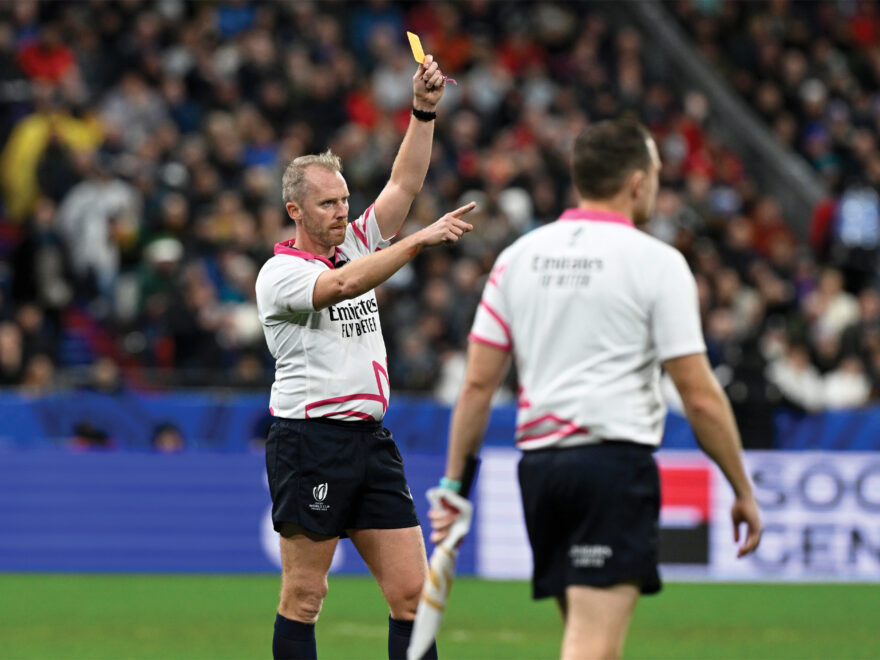Former Manu Samoa No 10 and freelance rugby scribe Campbell Burnes agrees that TMO overuse, at the international level, is ruining the game.
I’m with Sir Steve Hansen.
The Rugby World Cup-winning coach and knight has called for rugby to do away with the TMO, or at least curtail its powers.
This follows, you’ll recall, the most controversial final in Rugby World Cup history. It lasted two hours and five minutes from kickoff to no-side (!) and featured multiple interventions by TMO Tom Foley to ‘help out’ referee Wayne Barnes, who subsequently called time on his remarkable career.
There were some correct calls, some incorrect calls, some inconsistent calls. But as Hansen says, one certainly cannot lay the blame for how that final panned out at the feet of Barnes. We can for the infamous All Blacks’ 2007 RWC quarter-final defeat to France, or at least on World Rugby’s referees boss of the time for appointing such a green young official to such a pivotal clash.
Barnes missed a few things in the 2023 final, notably a raised elbow from Eben Etzebeth on Sam Cane. But he was still one of the top whistlers in world rugby.
The TMO was originally introduced to help the referee with contentious try rulings and later for foul play. The logic seemed sensible enough.
But now, as World Rugby runs scared from law suits by former players adversely affected by rugby-related concussions, they have gone too far in seeking to soften a dynamic and gladiatorial game that’s very DNA is based on contact. Some will blame these former players, tacitly, of course, but World Rugby fears it will face ruination if it does not address player safety. While noble in theory, this stance is now alienating staunch rugby people and watchers and destroying the ability of new audiences to embrace rugby’s appeal.
What you are left with is a game that takes too long to play, and is stop-start based on subjective decisions that many punters cannot even understand.
TMO rulings on high and/or dangerous tackles follow clear protocols, but those protocols are completely subjective as every tackle is different. During the World Cup, if a player was put on report after being yellow carded, two foul play review officers went to work on ruling whether the yellow should be upgraded to red. So Sam Cane, whose high shot on Jesse Kriel was a clear yellow, found it upgraded to red. By the nature of how the officials are ruling these sort of tackles – shoulder to head – it was the correct call. Strangely enough, the Siya Kolisi yellow for an accidental head clash with Ardie Savea, had more potential for injury as he ran hard from 10m away to clatter into the All Black. But, as I have maintained for two years, accidental head clashes should never incur yellow, let alone red, cards. They are accidents, even if the odd shoulder to the head is also an accident.
That is the maddening inconsistency we have in the game now. Far easier, as Hansen says, to strip the TMO of most of his power. Then we can get back to watching the game we love at the top level.
Failing that, just get along to watch your local club, old school or the NPC. That rugby is not subject to constant TMO interference and is over by the 90-95 minute mark, not two hours.
Campbell Burnes – Rugby Writer


